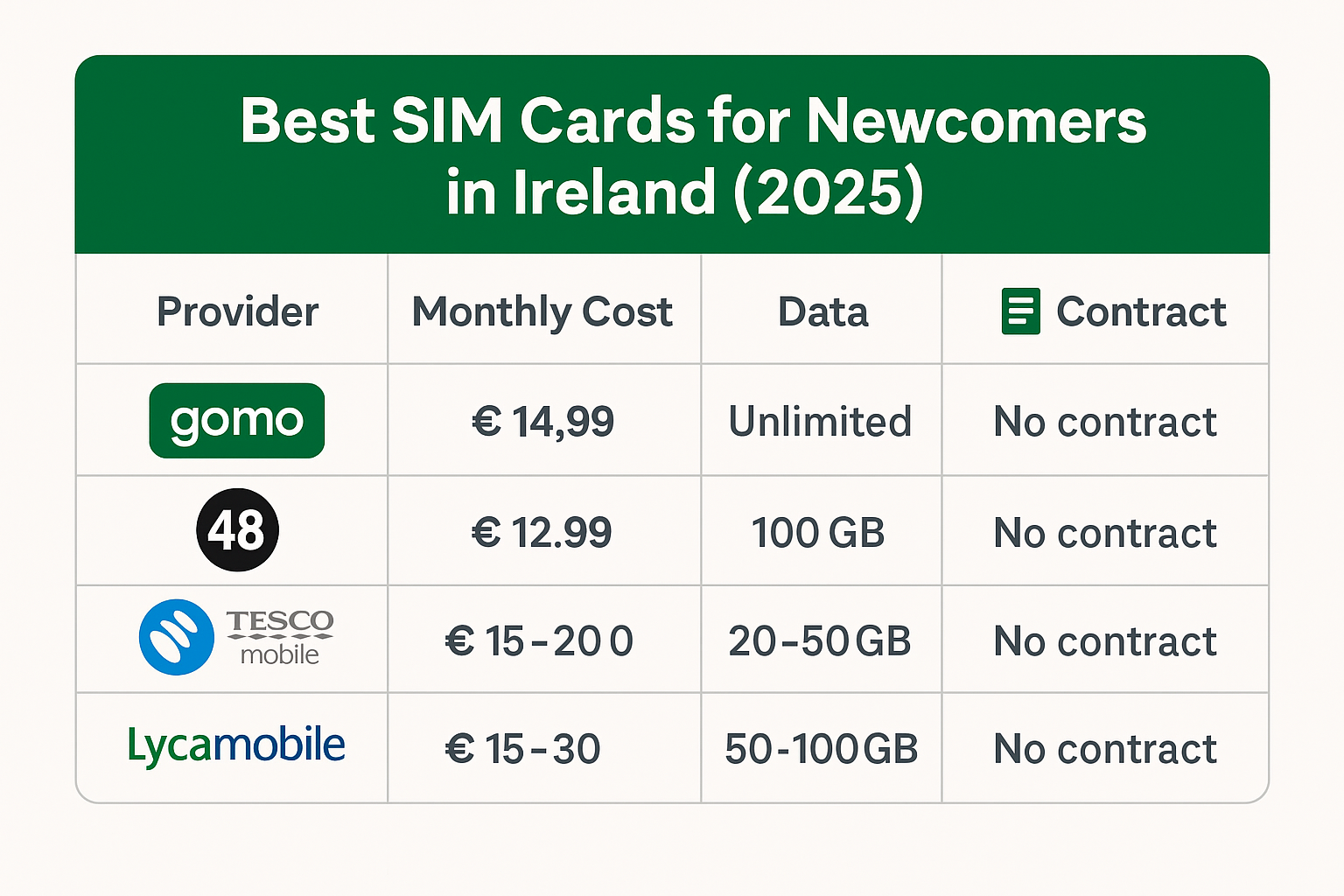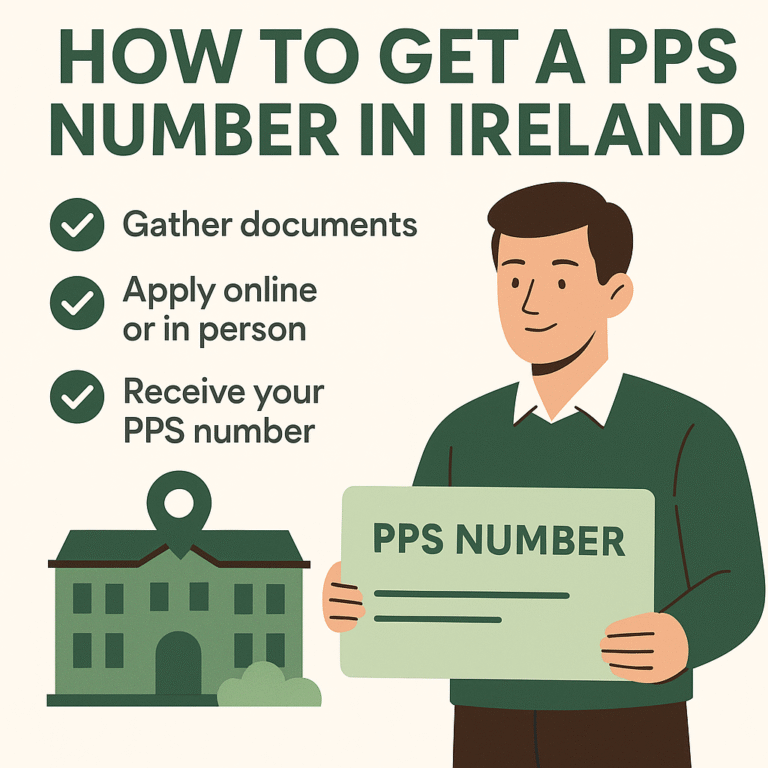
🛂 How to Get a GNIB Card in Ireland (2025 Guide for Non-EU Residents)
If you are moving to Ireland from outside the EU or EEA, getting your GNIB Card — officially called an Irish Residence Permit (IRP) Card — is a legal requirement if you plan to stay longer than 90 days. It proves you are registered with Irish Immigration and allows you to live, study, or work here lawfully.
This updated 2025 guide explains exactly who needs it, how to book an appointment, what documents to bring, and tips to avoid common mistakes.
✅ Who Needs a GNIB Card?
Non-EU and non-EEA nationals must register with immigration and get an IRP Card if they plan to stay in Ireland for more than three months. This includes:
- International students studying full-time.
- Employees working under a valid work permit.
- Non-EU spouses, partners, or dependants joining family members.
- Non-EU visitors who get an extended stay for certain reasons.
If you are from an EU or EEA country, you do not need a GNIB Card, but you may still have to register with local authorities if staying long-term.
🗂️ What to Prepare Before Applying
Before making your appointment, have these ready:
- A valid passport with an appropriate visa if required.
- Proof of address in Ireland (a utility bill, bank statement, or landlord letter).
- Proof of financial support — like recent bank statements or a scholarship letter.
- Proof of private medical insurance (mandatory for most students).
- Proof of your purpose in Ireland:
- Students: A letter of enrolment from your college.
- Employees: A valid work permit or employment contract.
👉 Related: How to Get a PPS Number in Ireland
📅 How to Book Your GNIB/IRP Appointment
You must book an appointment at an immigration registration office as soon as possible after arriving in Ireland.
✅ In Dublin:
Use the official online system to book at Burgh Quay Registration Office:
👉 INIS Appointment Booking
✅ Outside Dublin:
Contact your local Garda District Headquarters — they handle immigration registration outside the capital.
📌 Pro Tip: Appointment slots fill up quickly, especially during the back-to-college rush each September. Check daily for cancellations if no slots are available.
💶 How Much Does It Cost in 2025?
As of 2025:
- First-time GNIB/IRP Card: €300
- Renewal: €300 per year
Most offices accept debit/credit card or bank draft. Cash is rarely accepted, so check ahead to avoid problems.
🏷️ What Happens at the Office
Here’s what to expect:
1️⃣ Arrive early with all your documents and copies.
2️⃣ Immigration staff will check your forms, scan your fingerprints, and take a digital photo.
3️⃣ If everything is correct, they stamp your passport with the appropriate immigration stamp (Stamp 1, 2, or 4).
4️⃣ Your physical IRP Card arrives by post within 7–10 working days.
Always check your postal address is correct to avoid delays.
🔁 How Long Does It Last & How to Renew
Most GNIB/IRP Cards are valid for 1 year for students and employees. Some family visas may be issued for longer.
Renewals must be done before your current card expires. Missed renewals can lead to fines or problems re-entering Ireland if you travel abroad.
💡 Extra Practical Tips
✅ Keep multiple copies: Scan your IRP Card and store a copy digitally in case you lose it.
✅ Report loss immediately: Lost cards must be reported to your local Garda station and the Immigration Office. There is usually a replacement fee.
✅ Travel: Carry your card whenever you travel in or out of Ireland. Airlines and border control will ask for it.
❓ FAQs
👉 Is the GNIB Card the same as the IRP Card?
Yes — GNIB was the old name. Today, it is officially called the Irish Residence Permit (IRP) but people still say GNIB Card.
👉 Can I work with an IRP Card?
Check your immigration stamp. For students (Stamp 2), you can work part-time during term and full-time during holidays.
👉 How long does it take to get the card?
Once approved, the card is posted within about 2 weeks. Processing times can vary if you’re missing documents.
✅ Conclusion
Getting your GNIB/IRP Card is one of the first tasks for non-EU residents staying in Ireland long-term. Register early, bring the right documents, and keep your card valid to avoid legal or visa issues.
👉 For more newcomer help, check:






